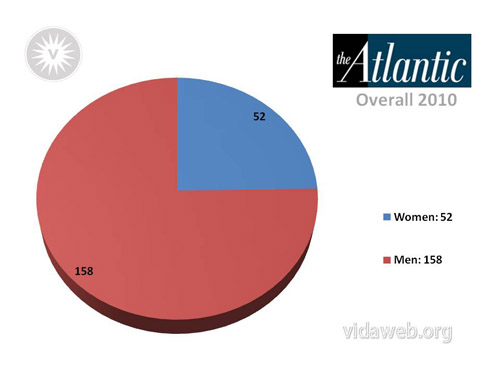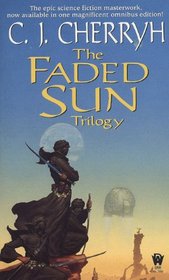Throughout Western history, literature has been dominated by men. Obviously some women have succeeded despite the odds, from the Brontë sisters and Jane Austen to J. K. Rowling, but as these charts show the disparity remains quite stark.

And I’m not just talking about the canon (the authors) or about the audience (which was actually probably much less male-dominated), but also about the entire industry. Men weren’t just the authors, they were the editors, the publishing moguls, and the retailers. Publishing is an entire ecosystem, and it has evolved over the last few centuries in a severely male-dominated culture. I think that is reflected in the nature of the system we have today: it’s highly competitive, winner-take all, fosters isolation, emphasizes an extremely simplistic author-audience relationship, and relies extensively on formal hierarchy and authority.
Am I implicitly accepting that there are intrinsic differences between men and women? No, I’m accepting it explicitly. I reject the idea that all gender differences are social constructs, because it doesn’t make any sense and is contradicted by the scientific data. I’m sure that many expressions of gender are constructs or historical accidents, but there are also evolved differences between men and women, and denying this fact is actually quite harmful.
For starters, the effort to try and retroactively balance out the Western canon to include more women is fundamentally misguided and counterproductive because it constitutes a denial of the reality of discrimination. If discrimination has a real cost, then we would expect that fewer women and minorities were ablt to write, publish, and influence culture. So if discrimination is real, women and minorities ought to be represented less in the historical canon.
I applaud efforts to go back and rescue minority works that deserve greater recognition, but the reality is that if you try to revise the Western literary canon to reflect modern diversity you’re hiding the most important evidence of the real harm caused by discrimination. The fact that we don’t have a diverse literary canon is the real-world consequence of discrimination, and to hide the bias in the canon is to pretend that discrimination didn’t actually cause irreparable harm. We should teach the Western canon as dominated by educated, white males because doing so recognizes that in a discriminatory society the best of the best lack diversity. We need to acknowledge the past–not whitewash it–if we want to do better in the future.
The second problem is that if we deny male-female differences then we end up trying to shoehorn women into male-centric institutions without challenging the legitimacy of that male-centrism. And that’s why I love mommy blogs.

Unlike the publishing industry, which has been run by men and for men since Gutenberg, the Internet is too recent an invention to have accumulated such a degree of systemic sexism. That’s not to say it doesn’t exist! Men far outnumber women in engineering and computer science (the guys who invented the Internet and founded most of the technologies and companies and platforms that we use), and it’s readily apparent that male-domination is sadly infiltrating aspects of the web. Wikipedia, where 91% of editors are men, is one such example.
But there are some aspects of the web that aren’t male-dominated, and mommy blogs are one (duh). Currently, in the United States at least, Pinterest is another. I love these blogs not only because I enjoy to read them, but because I feel that the male-dominance in the literary world has hurt me. The reality is that I just haven’t heard as many female voices, and I believe that female voices tend to be different from male voices in important ways.

If you’ll pardon the digression for just a minute, I want to mention that over the last few years my list of favorite science fiction authors has come to be dominated by women: C. J. Cherryh and Lois McMaster Bujold in particular (Ursula K. Le Guin has been on the list for a while, and Octavia Butler might make it once I read more of her stuff). As a kid my favorites were Asimov and Heinlein, but they–and most of the old school sci-fi writers–wrote in very stereotypically male ways. The characters tended to be quite shallow and the books were almost myopically focused on puzzle-solving as plot. Conflicts were simple and straightforward and resulted in pretty unambiguous victory or defeat. At its worst, as with Larry Niven’s award-winning crap “Ringworld”, the books were outrageously chauvinistic and amounted to little more then engineering ego-trips (Look! I invented a ringworld! And calculated it’s mass!)
By contrast, the female science fiction writers (many of whom had to change their names to conceal their gender) write much more character-centric and nuanced novels that go far beyond the sort of permanent adolescence of so much sci-fi. This isn’t to say that they couldn’t handle the hard sci-fi, C. J. Cherry in particular was rigorous in her treatment of interstellar travel and actually used real stars in her novels of humans expanding away from the earth, and she’s not afraid to have a throw-down space-battle or shoot-out either. But her books focused on much more interesting characters, especially men who were sick, injured, and traumatized and had to find strength in their vulnerability (a very important but downplayed kind of strength) along with women who were strong despite confining social conventions. The older I get the more I enjoy reading their novels because of how different they are from the way I see the world, and therefore because of how much I can learn from them. I already know how most male-written sci-fi novels are going to end, but I often don’t even understand what the real point of a Cherryh novel is until I’m done, and then it sticks with me afterwards.
I think that this–the act of listening–is a huge contrast to some of the well-intentioned men out there who run around trying to rescue women from sexism. No matter how well-intentioned folks like John Scalzi or Joss Wheddon may be, I feel like their brand of white-knight chauvinism ends up doing a lot of harm along with the good. I’m pretty sure based on his galant saving of damsels from sexist distress that John Scalzi applies affirmative action to how he selects which authors will be allowed to pimp their novels on his hugely popular blog (a recurring feature called “The Big Idea”), and it’s hard not to let that effect my estimation of the books that make the cut. I’m also pretty sure he’d denounce that and accuse me of being sexist if he ever heard the accusation, but the problem is that advocacy of equal outcomes creates a perception of favoritism even if it isn’t there. This is just one more sad example of how affirmative action backfires in practice.
Joss Wheddon may relish writing and directing movies that invert the male/female physical power dynamic, but in the end he’s still a guy telling girls what to do. Not to mention the perversely impossible expectations that arise when Buffy the Vampire Slayer becomes an icon of female empowerment based on her ability to kick everyone else’s ass. Don’t get me wrong, I think Zoe and River Tam are as awesme as the next guy, but at a certain point the fact that your female characters demonstrate they are strong by playing precisely one note over and over and over again (see also: the initial scene from the Avengers with the Black Widow and every episode of Dollhouse) starts to outweigh your good intentions. Especially when physical dominance is never going to be sound basis for female empowerment in the real world: it’s a cruelly impossible fantasy that looks more like someone trying to assuage male guilt than actually trying to empower women. In the end Buffy can’t be much of a real model of feminism because she’s not even a real person: she’s just a cartoon vehicle for politics. Buffy ran for 7 seasons, so this is obviously not true in every episode, but just watch the series finale to see the most egregious examples. The only female character in the series that had the temerity to be vulnerable to a man she loved gets hacked to death in the same episode, although the fact that she was an unabashed capitalist pretty much dictated her survival chances as zero anyway. The politics were so over-the-top and in-your-face, that the show’s leading heroine was reduced to being little more than just a sock puppet for Wheddon’s politics. The fact that he was trying to do the right thing doesn’t change that fact.
Sometimes the job of a male feminist (I consider myself to be that one, opinions will vary) is to stop trying to fix all the problems (and in the process hog the spotlight) and instead just sit down and shut up. Read. Listen. I’m not proposing that we sort of designate a male and a female publishing industry and then segregate people by gender, but I do think that in order for historically male-dominated institutions to change we need to see some alternative models.
Sometimes this means women challenging male-dominated institutions from the inside. Italian MP Licia Ronzulli provides an incredible example of this whenever she takes her kids to work, as it were. Sheryl Sandberg does an awesom job as the COO of Facebook and when she gives awesome TED talks. (Really, go watch that if you haven’t.)
But I think it’s also necessary for women to be able to build alternative institutions that can provide models for reforming the existing models, and that’s where I think mommy bloggers really come into play. In contrast to the rigidly hierarchical model of publishing where a bunch of wannabe authors fight it out to win the approval of a reigning editor to have their shot at being published, blogging is a much more community-driven endeavor that incorporates a direct audience-author relationship and even blurs the distinction between “audeince” and “author” since who you are can change from minute to minute. I think that this model not only might influence traditional publishing, I think it already has. For example, a blogger who introduces a work to fellow readers and writers, uses their feedback and encouragement to finish and refine it, and uses their social network to gain invaluable initial publicity, can either try the pure self-publishing route or can self-publish enough to attract the attention of mainstream publishing companies. 50 Shades, anyone?
But a lot of mommy bloggers aren’t necessarily interested in converting an audience into a traditional success, and why should they be? Why shouldn’t we expand the definition of a literary canon to include actual dialogue instead of privileged monologues? I don’t know! I’m not dictating here, I’m just following along, reading things I find interesting, and watching to see what develops. The whole point is that I, as a man, don’t get to dictate. For centuries women have read books written, edited, selected, printed, marketed, financed, and sold primarily by men. It’s my turn to listen, and I enjoy that.
In the long run, we can’t have true gender-equality until we’ve addressed all of society. Businesses today are designed around concepts from the Industrial Revolution, where workers were used for physical strength to do repetitive tasks (hence: all that mattered was how many hours you clocked) while women stayed home and tended children. Neither nature nor traditional family values had anything to do with that. In pre-industrial societies, economic activity was shared and the input of men, women, and their children were all vital. The 1950s image of a single-worker family is not an optimal arrangement, it’s a historical aberration. Now we have more and more women in the workplace, but the workplace hasn’t been updated. It needs to be. We need to not only have women authors, we need women editors, printers, marketers, financiers, and retailers. That can’t happen if we keep targeting equal representation in the workforce while denying gender differences. And there’s no reason it shouldn’t happen as we figure out how to reward workers for their actual production and not just for the number of hours they remain in their chair.
Meanwhile, on a personal level, I think my most important job as a male feminist is to just support the women who are actually in my life. I think we get to distracted by telescopic philanthropy: the idea of romanticizing abstractions of people remote from us who need our help as opposed to paying attention to the real live people whose lives fall at least partially within our sphere of influence. This means my most important duty as a male feminist is to support my wife.
I believe that the work of feminism is just beginning. The businesses, governments, and other institutions that make up our society are relics of bygone decades and centuries that evolved to suit men, and so women still face systemic challenges. I think affirmative action and quotas actually compounds rather than alleviating those problems, but I think that supportive men can have a real impact for good in enabling women to change those institutions as they see fit. Fighting over new laws and policies is often just as misguided as telescopic philanthropy: words on a page make us feel we’ve accomplished something, but changing society is about changing opinions and behavior not just drafting more statutes.
My wife is a trailblazer. Not only has she always done better than me in school and made more money than me on an hourly basis, but now she’s getting her PhD in a male-dominated field (computer science). Quite frankly, she kicks ass. I’m not being patronizing when I say that my wife is smarter than me because she has the grades, standardized test scores, awards, and scholarships to prove it. When she gets her PhD she will also be more educated than me, and I’m completely comfortable with that. (Why some men find intelligence in women off-putting or threatening I will never understand.) The imporatnt thing for me to do is to work hard to help her succeed, and with her success I know that she will change the institutions where she works or studies for the better. And that will make things a little bit easier for my daughter, who is also quite brilliant because she takes after her mother.
And that’s why I love mommy blogs: to me they represent the vibrant future of positive, proactive feminism reshaping the world to better suit women instead of just trying to force women to accomodate themselves to institutions passed down from sexist societies.

I was actually browsing some of the research on inherent differences between males and females a few weeks ago. I’d appreciate you pointing me toward some of the scientific data that contradicts the social construct theory.
WalkerW –
I’ll see if I can find some of the better sources (I don’t have any handy), but in the interim I will share an anecdote. I was talking to Scott Page (UMich professor and expert on complex systems and diversity) when he told me frankly that he doesn’t bother trying to talk about gender diversity anymore because so many feminists refuse to hear about. Part of his thesis is that women are important in the work place precisely because they are different, and organizations depend on diversity to be robust and agile, but if his audience includes those who will object to the claim he just drops it from the presentation.
In any case, I’ll try to gather together some of the studies and such I’ve read over the years, but for me it’s one of those things that’s so obvious that it’s sort of silly to have to argue. The opposing premise–that despite the clear and obvious sexual dimorphism of our species there are absolutely no substantial genetic behavior adaptations to go along with it–is just insane. The idea that gender is nothing but surface topology defies common sense.
Oh, I absolutely agree. Most of my research on the subject has revolved around neuroscience and the way the different sexes process information. I’ve put some books on my never-ending “to-read” list, but I don’t know if any deal specifically with the innate differences. I can look it up myself, but I thought you might have some specific studies you were alluding to. Thanks.
I wrote about women in the workplace after Romney’s “binders full of women” comment: http://theslowhunch.blogspot.com/#!/2012/10/binders-and-blinders.html
Thanks for pointing me in Scott Page’s direction. I’m looking at picking up ‘The Difference’ in the near future.
Thought you’d find this interesting: http://www.theatlantic.com/sexes/archive/2013/03/what-lean-in-misunderstands-about-gender-differences/274138/
That is indeed fascinating, WalkerW. Thanks for the pointer!
More evidence of the complementary nature of distinct gender roles: http://www.aei.org/article/society-and-culture/race-and-gender/guys-who-do-housework-get-less-sex/?utm_source=today&utm_medium=web&utm_campaign=032913
Also, I don’t know if you’ve heard of the recent book ‘The Athena Doctrine’ (check out the TED talk: http://www.youtube.com/watch?v=YxgTsyL4y0E), but one of the researchers Amy Choi has a pretty awesome article about being made a prop in feminism: http://feministing.com/2013/03/22/dont-make-me-a-prop-in-your-feminism/